Tour de France: Five questions for the final week
Can Contador come back, Cavendish-v-Kittel, the Mollema dilemma and more
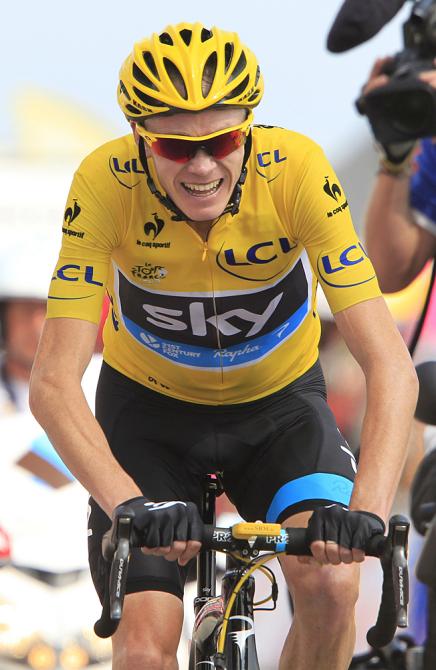
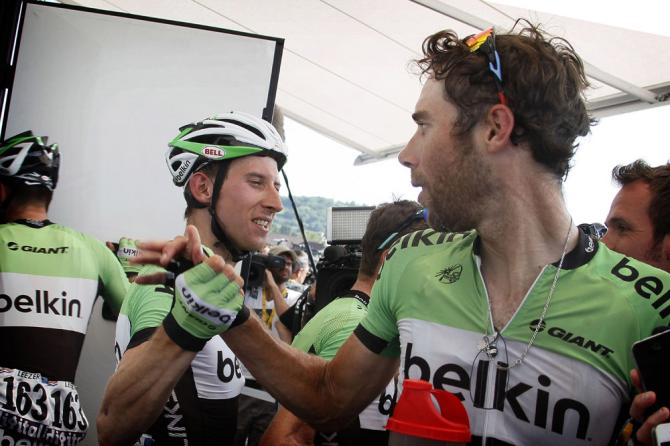
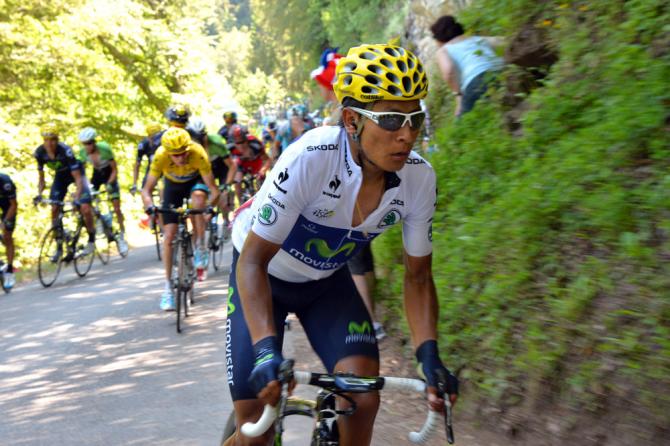
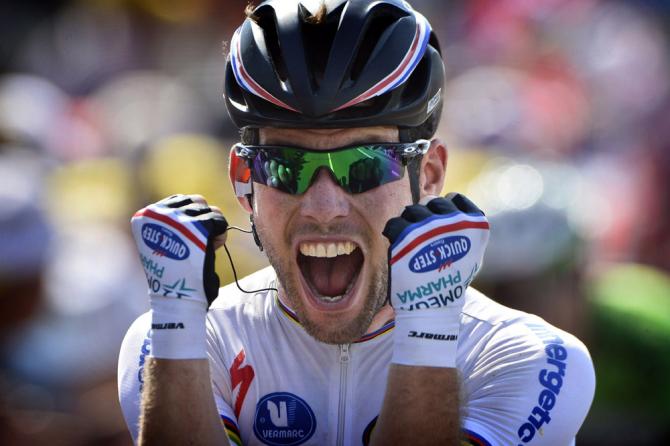
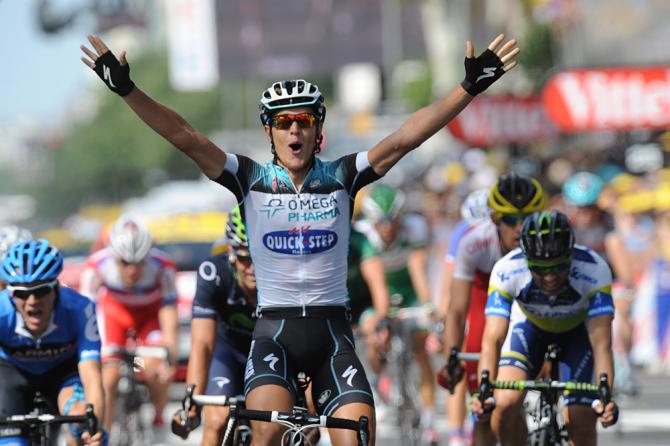
Is there a way back for Alberto Contador?
Video: Cavendish reflects on his 25th Tour win and the beauty of the race
Froome in a league of his own on Mont Ventoux
Tour de France video: Froome on doping, winning on Mont Ventoux
There is no reason to doubt Froome's performances, says Contador
Tour de France shorts: Rain on its way, no friends for Team Sky
Over four minutes down and with another possible hammering in the time trial to Chorges to come on Wednesday, Alberto Contador is currently in a four way battle for second place with winning the race a fading prospect.
In fact, bring a hungry Nairo Quintana (Movistar) and an improving Joaquim Rodriguez (Katusha) into the mix and the Saxo-Tinkoff team leader could find himself well and truly eclipsed in this year's race.
However it is worth noting that a fully fit Contador has never lost a three-week race since his 2007 Tour win. In 2011, a Giro-weary Contador crashed in the opening week and effectively rode the rest of the race with one leg. He still managed to almost turn the race on its head in the gripping stage to Alpe d'Huez but this year - since his return from his ban actually - he's looked below his best and lacks that punch in the mountains. A good, rather than spectacular Contador, is still a dangerous prospect but while the Spanish press hang on to sense of desperate hope, in reality Contador needs at least three great days in this Tour for it to turn his way.
So where can Contador gain time on his rivals and then put pressure on Froome? Presuming he’s not yet settling for a place on the podium the Spaniard has a few options. Today’s stage to Gap could prove pivotal, as the climb of Fuente Dé did after the second rest day in the Vuelta last year. The terrain could see Saxo-Tinkoff try to storm Team Sky’s defences and then expose Froome to risky day on the back foot.
Alpe d'Huez in principle suits Froome's current superiority in uphill finishes but Contador may decide on a long pitched battle on the first ascent. Risky, but as he stated in his rest day press conference, winning is everything.
If those options are not taken up, or worse for Contador, they backfire, then the stage to Le Grand Bornand could be his last chance. Isolate Froome on the Madeleine and then utilize Saxo-Tinkoff’s superior strength in the valley.
Get The Leadout Newsletter
The latest race content, interviews, features, reviews and expert buying guides, direct to your inbox!
Movistar, rather than Belkin, will be willing allies but any such talk of a Contador win in this race remains a long shot. If he were to pull it off though it would undoubtedly be the most spectacular win of his career.
Can Belkin keep Mollema on the podium?
It was already clear on the stage to Saint-Amand-Montrond that Belkin were racing for second place. Bauke Mollema and ten Dam both latched onto the Saxo Tinkoff express but the pair barely did a tap on the front after the race split.
With Froome isolated and Contador joining his men on the front, a Belkin-Saxo Bank alliance would have been a clear indication that the Dutch riders felt that Froome could be beaten come Paris. In hindsight it would have also put more time into Quintana and Rodriguez.
No gifts from Froome?
Barring accident or other remarkable circumstances, Chris Froome looks destined to ride into Paris on Sunday evening in the yellow jersey and become the second successive British winner of the Tour de France. True, Alberto Contador won’t lay down arms just yet and the 2013 iteration of the Team Sky machine is not as efficient as the 2012 vintage, but Froome has been in a league of his own during this race and it’s hard to imagine that changing now. The only question, it seems, is the size of his winning margin.
After two weeks of racing, Froome holds an advantage of 4:18 over second-placed Bauke Mollema (Belkin) and that buffer was essentially built in just three stages – the summit finishes at Ax 3 Domaines and Mont Ventoux, and the Mont-Saint-Michel time trial. If Froome continues in the same vein in week three, it’s not inconceivable that he could double his lead come Paris, with the Chorges time trial and the Alpe d’Huez and Semnoz summit finishes to come.
Lance Armstrong was similarly dominant in 2004, as was Laurent Fignon in 1984, and – adhering to a strict ‘no gifts’ policy – each man continued to hammer home his mastery in the mountains and against the watch all the way to Paris. It will be fascinating to see if Froome does likewise, or if he decides – like Miguel Indurain and Alberto Contador, in particular – that with the war all but won, it is time to start winning some allies for future campaigns.
Given the doping innuendo that has followed Froome’s every acceleration at this Tour de France, he may well be tempted to lay off the accelerator but at this point, it is hard to imagine that anything he does in the final week will sway the doubters one way or another.
Can Cavendish make it five in a row on the Champs-Élysées?
No less a figure than André Darrigade reckons he’s the greatest sprinter of all-time and there has certainly been no questioning Mark Cavendish’s pre-eminence in the field since he began amassing his running tally of 25 Tour stage wins back in 2008. He abandoned that race early to prepare for the Madison at the Beijing Olympics, but ever since, the Champs-Élysées stage has been a triumphal march for the Napoleon of bunch sprinting, as he has claimed four wins out of four.
For the first time since the Cavendish era began, however, there is a genuine contender to his throne in the peloton this year. Marcel Kittel has won three stages to Cavendish’s two so far on this Tour, and more significantly, he beat the Manxman in a straight sprint in Tours, over-hauling him in the final 100 metres to claim victory. No excuses were offered and Cavendish was generous in his praise afterwards, but it is a defeat that will have hurt.
Cavendish responded perfectly the next day by winning from a select group after his Omega Pharma-QuickStep team helped him into the decisive echelon on the road to Saint-Amand-Montrond, while Kittel was caught behind with a chain problem. It boosted Cavendish's moral and that of his teammates and the Manxman will approach the inevitable face-off on the Champs-Élysées confident of reasserting his status.
The first ever floodlit finale on the Champs-Élysées will provide a grand setting for what should be a great sprint off, as the Argos-Shimano and Omega Pharma-QuickStep lead-outs go head-to-head. The history of cycling has been written around its rivalries, and the 25-year-old Kittel has developed into the worthiest of adversaries for Cavendish in his third professional season. Regardless of the outcome on Sunday, it will be intriguing to see how this duel plays out in the years to come.
What’s happened to the traditional cycling countries?
We are into the final week of the Tour de France and surprisingly riders from France, Spain and Italy have only won a single stage. Matteo Trentin (Omega Pharma-Quick Step) saved the blushes of the former cycling powerhouses, with his well-timed sprint on stage 14. Without it we would have been looking at a Tour dry spell for the three countries for the first time since 1926.
Sylvain Chavanel and Thomas Voeckler have traditionally been a good source of stage victories for the French but this year Chavanel has been putting most of his efforts into riding for Mark Cavendish, while Voeckler has been severely lacking in this year’s race.
The Europcar rider sits over an hour down in the general classification and doesn’t look like he has the form for one of his famed attacks. With no firepower in the sprints, after Nacer Bouhanni’s departure early on, the French will be hoping one of their men can make his way into a successful break. In the tough final week a repeat on the Alpe d’Huez by Pierre Rolland may be their only hope.
The last time we saw a Tour de France with no French stage winners was 1999. They were only saved by victory in the mountains and young riders’ classification, won by Richard Virenque and Benoit Salmon.
Arriving to the Tour de France with riders like Alberto Contador, Alejandro Valverde and Joaquim Rodríguez, Spain must have been wondering how many wins rather than if. However, with only a handful of stages remaining they‘ve failed to convert the expectation. José Joaquín Rojas (Movistar) was their biggest chance for glory, but he got it wrong in the escape on stage 14.
With Chris Froome dominating the high mountains the Spanish may have to group together to get the better of him, something they’re yet to do.
